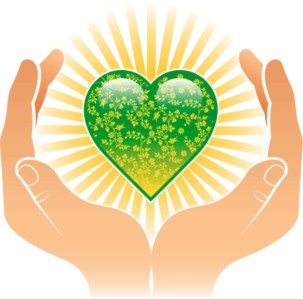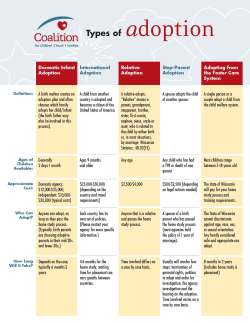Congratulations! You have made the decision to build your family through adoption. The first step in your adoption journey is to choose an agency. You may be thinking that you want an agency that is licensed by the state, honest, and ethical.
 You may also want to work with staff who is compassionate, patient, efficient, and available when you need them. It’s a good idea to call a few different adoption agencies to see which one is the best fit for you and your family. Here are a few tips to get you started.
You may also want to work with staff who is compassionate, patient, efficient, and available when you need them. It’s a good idea to call a few different adoption agencies to see which one is the best fit for you and your family. Here are a few tips to get you started.
Researching an Agency
Gather as much information as possible about adoption in Wisconsin, adoption agencies, and state requirements. Ask questions like:
- What agencies offer the kind of programs you are looking for?
- Is the agency licensed by the state?
- Is the license current?
- When did the licensing board last visit the agency?
- Are there any current or unresolved complaints against the agency?
- You can find these answers by contacting the Department of Children & Families at 608-267-3905or at http://dcf.wisconsin.gov.
Networking and Support Groups
You also might try networking with adoptive parent support groups to find out about the agencies they went to and ask for recommendations. (For a list of support groups, check out the resource section at the end of this tip sheet.)
Support groups and adoption classes are also helpful throughout the whole adoption process, because there is only so much information you can get from agency staff and websites. The real learning comes when you can combine that information with forming relationships with others who are taking the same journey that you are.
Elizabeth Ghilardi, a Wisconsin adoptive parent says, “In the course of our adoption process, we went through 13 weeks of preparation classes; something we initially were not looking forward to, but turned out to be wonderful.”
She goes on to say, “We have kept in touch with many of the families and have gatherings on a regular basis. We have developed an unbelievable support network that is invaluable to our family and the children. Among us, we’ve adopted a total of eight children, with several more pending.”
Once you’ve narrowed down the search for an adoption agency, set up an introductory meeting so you can ask more detailed questions.
Continue reading the tip sheet.
 It’s World Wide Wednesday! Here’s what’s news in the world of foster care and adoption around the web:
It’s World Wide Wednesday! Here’s what’s news in the world of foster care and adoption around the web: You may also want to work with staff who is compassionate, patient, efficient, and available when you need them. It’s a good idea to call a few different adoption agencies to see which one is the best fit for you and your family. Here are a few tips to get you started.
You may also want to work with staff who is compassionate, patient, efficient, and available when you need them. It’s a good idea to call a few different adoption agencies to see which one is the best fit for you and your family. Here are a few tips to get you started. Below are the three most common
Below are the three most common  away’ part. I’d fallen in love with him the moment our eyes met, and the thought of letting him go was devastating. But it wasn’t about me. And for his sake, I wished for a happy healthy reunification. But it just wasn’t meant to be. A couple of years passed and I was asked if I’d be willing to adopt. A couple more years passed, and we had an adoption date. I remember every detail of that day. He wore little cuffed corduroys, an oxford shirt, and suede wingtips. I remember family and friends with balloons and cameras at the ready. I remember the judge letting him bang the gavel to finalize his own adoption.
away’ part. I’d fallen in love with him the moment our eyes met, and the thought of letting him go was devastating. But it wasn’t about me. And for his sake, I wished for a happy healthy reunification. But it just wasn’t meant to be. A couple of years passed and I was asked if I’d be willing to adopt. A couple more years passed, and we had an adoption date. I remember every detail of that day. He wore little cuffed corduroys, an oxford shirt, and suede wingtips. I remember family and friends with balloons and cameras at the ready. I remember the judge letting him bang the gavel to finalize his own adoption. finalization of an adoption is the happy ending to what has often been a lengthy, nerve-wracking, emotional roller coaster ride. What possible reason could there be to be depressed when it finally ends?
finalization of an adoption is the happy ending to what has often been a lengthy, nerve-wracking, emotional roller coaster ride. What possible reason could there be to be depressed when it finally ends?

 Any number of books are available to help adoptive parents explain adoption to their child, at any age. Adoption books cover many different themes regarding different topics related to adoption.
Any number of books are available to help adoptive parents explain adoption to their child, at any age. Adoption books cover many different themes regarding different topics related to adoption.